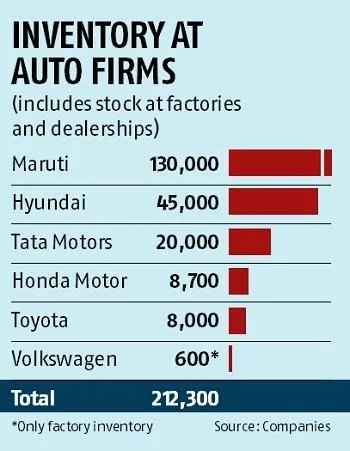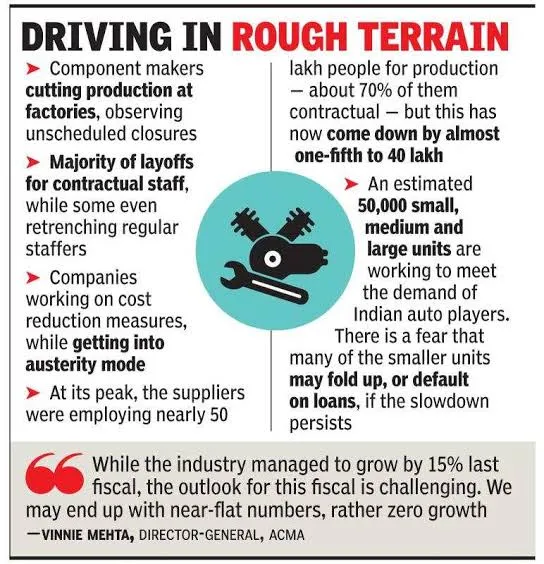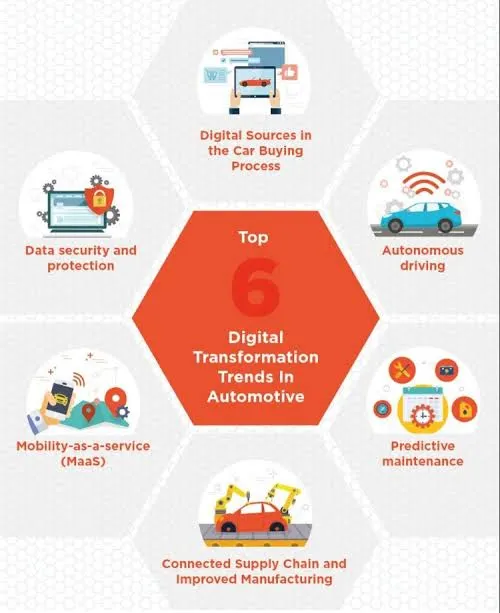

Top 5 Future Trends in the Automotive Industry
Due to the COVID19 pandemic, the automobile industry faces a huge crisis in both the demand and consumption in rural and urban areas. Many leading automobile plants are closed, halted their production, mandated plant closures, in turn, let the contractual workforce lose their job. This reverse gear of the Indian auto industry has affected research and development, technological up-gradation, and closing of the inventory. The inventory is piled up with old productions ready to be out in the Indian markets.

HIGHLIGHTS:
- The Indian automobile industry is fourth in the world
- Two-wheeler industry in India is the largest in the world
- Largest tractor manufacturer
- Eighth largest commercial vehicles manufacturers in the world
All the automakers in the list Honda, Hyundai, Maruti Suzuki, Mahindra & Mahindra, Tata Motors, Kia motors, hero motocorp, Honda Motorcycle, scooter India, TVS motor company, Bajaj Auto, Suzuki motorcycle and many more have supported the lockdown. The automobile industry has faced a production loss of 2 lakh crore till now. Also, the auto industry is hit from multiple fronts including domestic and export demands, supply chain disruption.

Top 5 Future Trends in the Automotive industry
Consumer-centric approach
Software and data are becoming necessary to develop both local and global strategies. Collecting data from the users, partnering with the major or minor industry standards, activating the ecosystem will lead to a more customer-centric approach.
Agility for innovation
All of the innovation comes from the implementation of agile methods. IT department is an integral part to derive the strategic decision-making process, product development, production pipeline, and commercial department. Now the cars with basic features have transformed into advanced features. For example, a big data analytics platform is used to optimize various parts.
The introduction of IoT has made significant opportunities in the automotive insurance sector such as UBI (usage-based insurance). The automotive UBI can work in IoT based fleet management, semi-autonomous and autonomous car, artificial intelligence, and HMI in transportation in the future. A strong IoT backup is required to connect vehicles and devices.

Partnering
The importance of the partnership between startups, major companies, local and central government leads to unique solutions for unique auto problems. Major partnerships with big brands can prevail even at a big range. The support from the Government will be a new approach that will enhance the user experience.
Connectivity and data
The combined response of diverse mobility and digitization can be looked at in future cars. Connectivity and data in the vehicles help the consumer in a long way.
Autonomous and electric vehicles
It will take far longer to cope with the latest technologies based on EVs and autonomous vehicles. Consumers adopt changes when it is likely to favor their needs. That is true in the case of combustion cars other than fossil fuels. Autonomous cars make both passengers and drivers available at the same times.
Different markets have identified different trends in the coming years. The automotive UBI, V2G, vehicle as hub concept, mild hybrid, and health monitoring are some of them. Specific support is provided by the Supreme court withBS-IVV stock liquidation. Also, an extension of the moratorium on principal interest payment will provide further relief. plan the things in favor of employee engagement, cash and liquidity management, sales and marketing revival, and operational continuity.
According to the data released by industry body Society of India automobile manufacturers, passenger vehicle sales declined 51% to 1,43,400 units last month. While sales of commercial vehicles exploded 88% to 13027 units, those of two-wheelers fell 40% to 866,469 units. In order to respond to this pandemic, automakers are looking for agile manufacturing processes and supply chains. They tend to reduce the cost of production and also diminishing the total cost of ownership for their clients. This will give rise to their vehicles more feature-rich experience.




